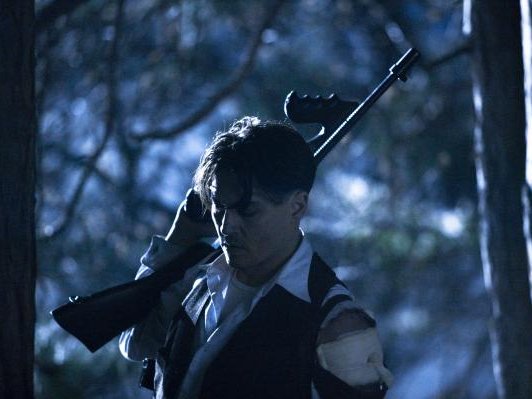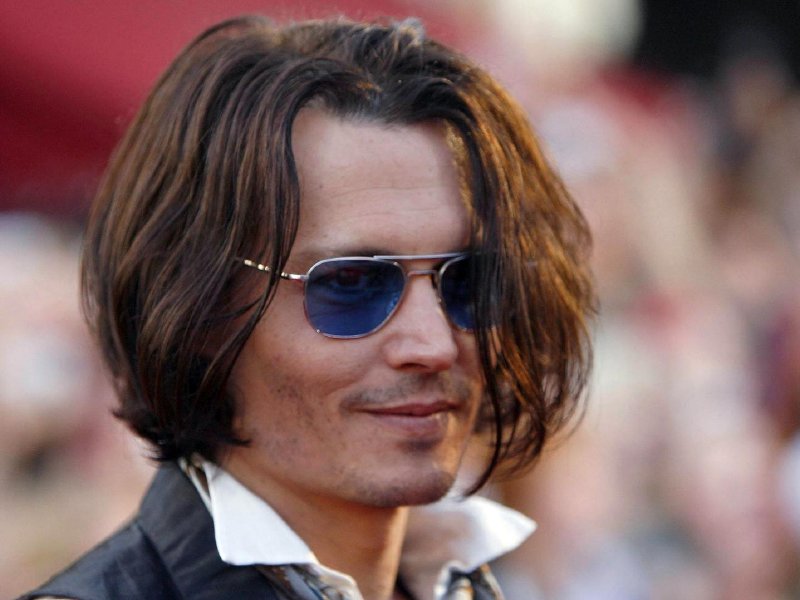Here is a look at what movie critics from around the country wrote about the new movie "Public Enemies," which was filmed in Wisconsin by director Michael Mann and stars Johnny Depp as John Dillinger.
David Denby
The New Yorker
"For all its skill, "Public Enemies" is not quite a great movie. There's something missing-a sense of urgency and discovery, a more complicated narrative path, a shrewder, tougher sense of who John Dillinger is. The bank robber had a brief run as a national figure. Paroled after nearly nine years in the Indiana pen, on May 10, 1933, he rampaged his way around the country, often living openly in Chicago and smaller cities, and was shot dead by a variety of cops and agents fourteen months later, on July 22, 1934. As the movie tells it (Mann wrote the screenplay with Ronan Bennett and Ann Biderman, adapting Bryan Burrough's 2004 book, also called "Public Enemies"), Dillinger was a gentleman thug, loyal to his friends and to his hat-check girlfriend, Billie Frechette, played by Marion Cotillard with a combination of desperate hope and fear that is enormously appealing. Relaxed and assured, Depp, with his fine, sharply cut features and lithe body, turns Dillinger into a supremely confident young man. "What do you want?" Cotillard asks him. "Everything, right now," he says. It's the quintessential movie gangster's demand, although Depp speaks softly, without the snarling boastfulness of the great actors (Paul Muni, James Cagney, Edward G. Robinson) who played gangsters when Dillinger was alive. There's a faint tone of mockery in Depp's mildness, in his secret half smile, though his face can darken with rage. Mann and Depp's idea of Dillinger as an unruffled prince of crime is extremely enjoyable. Yet, as the movie goes on, you begin to question whether it makes much sense."
Roger Ebert
Chicago Sun-Times
"This Johnny Depp performance is something else. For once an actor playing a gangster does not seem to base his performance on movies he has seen. He starts cold. He plays Dillinger as a Fact."
Manohla Dargis
New York Times
"A grave and beautiful work of art. Shot in high-definition digital by a filmmaker who'€™s helping change the way movies look, it revisits with meticulous detail and convulsions of violence a short, frantic period in the life and bank-robbing times of John Dillinger, an Indiana farm boy turned Depression outlaw, played by a low-voltage Johnny Depp....
"... Much of what makes the movie pleasurable is the vigor with which it restages our familiar romance with period criminals, a perennial affair. But what also makes it more than the sum of its spectacular shootouts is the ambivalence about this romance that seeps into the filmmaking, steadily darkening the skies and draining the story of easy thrills."
Kenneth Turan
Los Angeles Times
"Mann often wants to do traditional films but do them differently, do them better, enabling the audience to feel both the newness and the tradition. With "Public Enemies," he has made an impressive film of great formal skill, one that inescapably has a brooding dark-night-of-the-soul quality about it..."
"... A restrained performance like that only succeeds when it's given by an actor as intrinsically charismatic as Depp. His Dillinger can be as ruthless as the next guy and handy with a submachine gun when his bank robbery spree demands it, but what we end up admiring are his nerve, his style, his long gabardine overcoats (reminiscent of the long dusters worn by those other Midwestern movie outlaws, the James gang) and his hip, round sunglasses. This is star power acting with magnetism to spare."
Claudia Puig
USA Today
"Director Michael Mann mounts a technically proficient, visually enthralling crime drama anchored by the low-key but captivating performance of Johnny Depp as legendary bank robber John Dillinger."
Peter Rainer
Christian Science Monitor
"Hollywood has made so many 1930s-era gangster movies that the only excuse for a new one is novelty. Why else endure yet again all those rat-a-tat shootouts? Nostalgia has its limits.
Michael Mann's "Public Enemies," starring Johnny Depp as John Dillinger, doesn't attempt to break new ground. It tills the old ground, albeit with new-style star power and Mann's signature cinematic flourishes. But Depp is unduly subdued and Mann's cape work is oversold."
MTV
"Depp's charm works against him in portraying Dillinger as a cold-blooded gunman - he lacks the requisite sense of menace, no matter how energetically he goes through the motions of bullet-fueled mayhem. Still, the motions - the jailbreaks, robberies and ferocious shootouts, with tommy guns barking and gangsters in their new Ford V-8s leaving underpowered lawmen in the dust - are spectacularly well-staged. There's an opening escape from the Indiana State Penitentiary in which the bleak, towering walls of the prison, and the flawless blue sky they can't quite blot out, convey feelings of both hopeless confinement and beckoning freedom in a single resonant image. Equally striking is the sequence in which Dillinger is recaptured and flown back to Indiana, where he's met at the airport by a roiling herd of reporters and cameramen, whose smoke-belching flashguns light up the windy night with a lurid magnesium glare. (It feels like we're present at the birth of paparazzi journalism.) Mann and Dante Spinotti, the great cinematographer with whom he worked on such movies as "The Insider" and "Heat," opted for HD cameras in shooting the film, and digital has rarely been used to such rich effect."
Michael Sragow
Baltimore Sun
"Public Enemies provides a welcome shock to the system. This tough-minded, visually electric movie about Great Depression bank robber John Dillinger ( Johnny Depp) takes audiences into the center of the action in its opening minutes. It keeps them there as it expands into a bristling chronicle of a country in flux. Without ever telling viewers what to think or how to feel, it raises more questions about the corruption of crime and crime fighting than any expose or thesis. And if it sometimes registers too coolly, by the end it rouses more bruised feelings than any four-hankie weepie."
Lisa Schwarzbaum
Entertainment Weekly
"The gangster-in-chief is played by Johnny Depp, one of the most effortlessly elegant, intriguingly self-contained American movie stars on screen today. But that mystery comes with a price. By the end of this arm's-length study, Depp's Dillinger comes across as an interesting cat, but never a knowable man - he's a pop cultural phenomenon because the movie asserts he is, not because we believe it. We don't feel the bank robber's heartbeat the way we felt the agonies of Russell Crowe's whistle-blower at the end of "The Insider" - or even grooved on the rhythms of cops Sonny Crockett and Rico Tubbs on Mann's stylish "Miami Vice."
Gary Thompson
Philadelphia Daily News
"So the classic Mann setup is formed - smart and dedicated men on either side of the law, working with cool precision to destroy the other. There are other familiar Mann figures here - the woman who both loves and fears the obsessions of her man. Here it's Marion Cotillard as Dillinger's lover, a fellow social outcast for whom money means access to speakeasy society. Class resentment is a theme; the script positions Dillinger as an outlaw "Seabiscuit," capturing the imagination of a beleaguered country, but Mann leaves it underdeveloped.
"It's one of a dozen pithy ideas floating around "Public Enemies" half-formed. Like Dillinger as doomed individualist - he was dimed-out by the Chicago syndicate, which saw that his small-time freelancing attracted unwanted federal attention.
"Mann also mocks Hoover's expansionism (the title is a double entendre), and his movie warns against unchecked federal power, which pointedly takes the form of high-tech surveillance and then torture (though in "Enemies," torture actually works). Purvis, partly because he tolerates such excess, loses a bit of his soul in apprehending Dillinger, while Dillinger himself is elevated to tragic mystic. He spends his last hours in Chicago's Biograph theater watching a Clark Gable gangster movie, a scene that fuses notoriety with celebrity, and hints that Dillinger sensed the squad of executioners who waited outside.
"It doesn't all work, but quite a bit of it does, like the strangely lyrical final scene. There are enough good moments to please Mann's fans, but the "Transformers" crowd may be lost."





